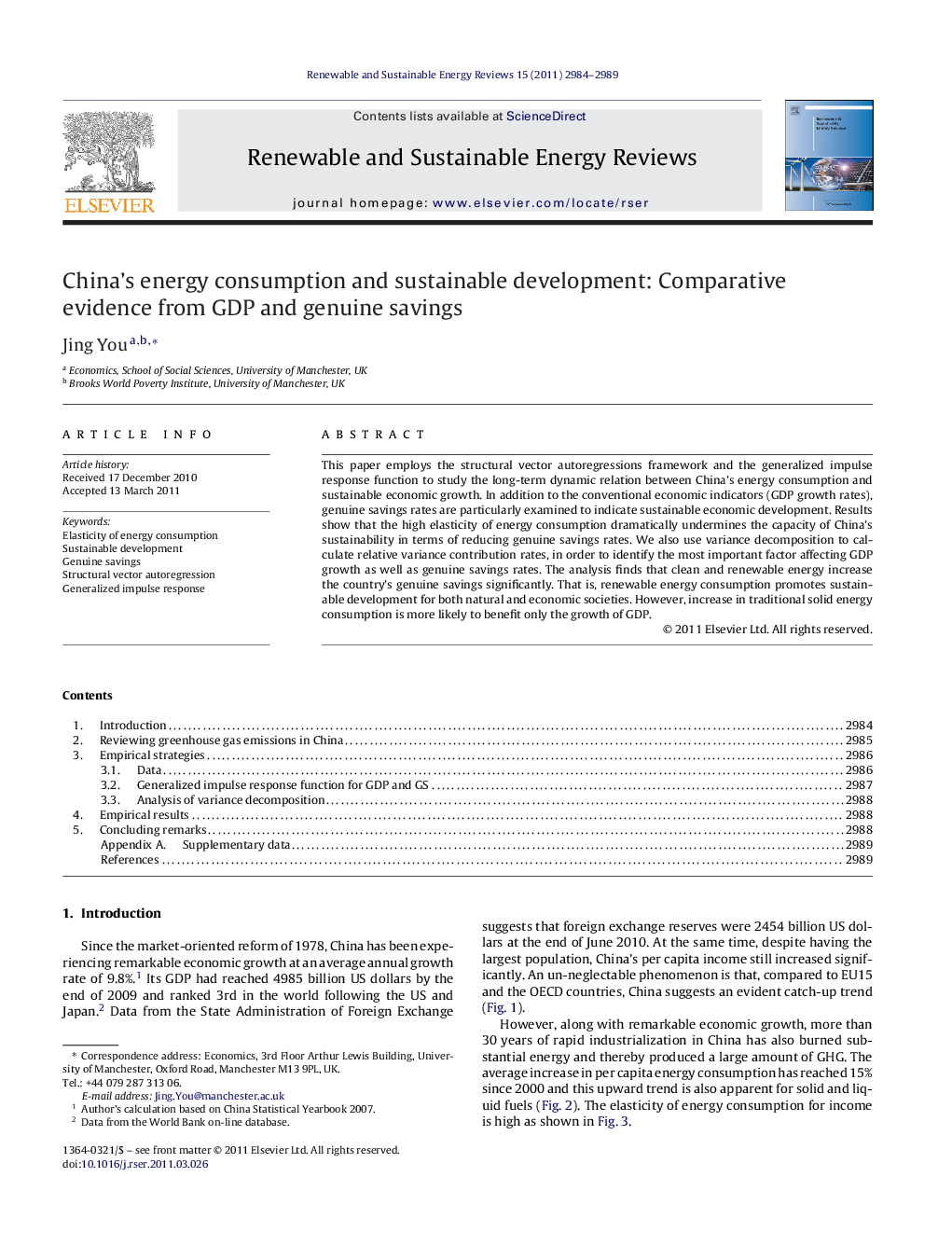| Article ID | Journal | Published Year | Pages | File Type |
|---|---|---|---|---|
| 1751155 | Renewable and Sustainable Energy Reviews | 2011 | 6 Pages |
This paper employs the structural vector autoregressions framework and the generalized impulse response function to study the long-term dynamic relation between China's energy consumption and sustainable economic growth. In addition to the conventional economic indicators (GDP growth rates), genuine savings rates are particularly examined to indicate sustainable economic development. Results show that the high elasticity of energy consumption dramatically undermines the capacity of China's sustainability in terms of reducing genuine savings rates. We also use variance decomposition to calculate relative variance contribution rates, in order to identify the most important factor affecting GDP growth as well as genuine savings rates. The analysis finds that clean and renewable energy increase the country's genuine savings significantly. That is, renewable energy consumption promotes sustainable development for both natural and economic societies. However, increase in traditional solid energy consumption is more likely to benefit only the growth of GDP.
